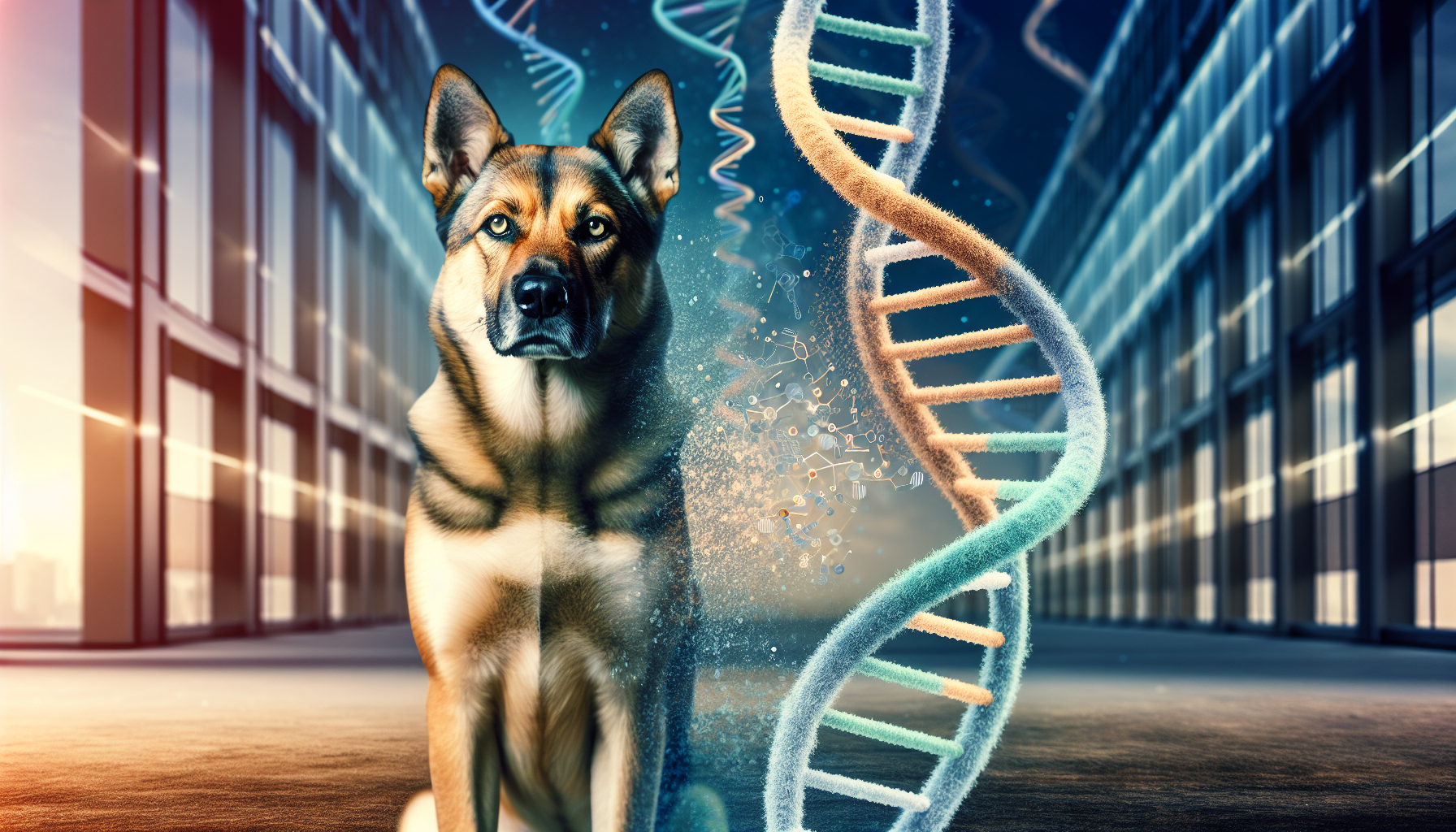Understanding Canine Origins
The Evolution of Dogs
When we think about our furry companions, we often picture them lounging on our couches, begging for treats, or playfully chasing after their toys. But beyond these adorable antics lies a fascinating history filled with evolutionary marvels. Dogs, in fact, are direct descendants of wolves, with a complex relationship that spans thousands of years.
From Wolves to Man’s Best Friend
It’s believed that the domestication of dogs began roughly 20,000 to 40,000 years ago. Wolves that were less fearful of humans had the edge. These animals found a food source near human settlements, which led to a unique partnership. Over generations, traits that benefited this relationship—like increased sociability and reduced aggression—were naturally selected. Adapting to human lifestyles, these early canines took on roles such as hunting partners, guard animals, and companions.
Diverse Breeds and Their Origins
As humans spread across the globe, so did their canine companions. Gradually, these animals adapted to their environments, and humans began selective breeding to enhance specific traits. This resulted in more than 340 distinct dog breeds recognized today, each with its own origin story.
Working Dogs vs. Companion Dogs
When you go to a dog park, you’ll notice an incredible variety of breeds, each suited to different tasks. Working dogs, such as German Shepherds, were bred for their intelligence and strength. They often excel in roles such as police work, search and rescue, and herding. Companion dogs, like the Cavalier King Charles Spaniel, were bred primarily for friendship and companionship, thriving in homes filled with love and affection.
Unique Breeds and Their Surprising Histories
Each breed has its own fascinating backstory. The Chihuahua, for instance, originated in Mexico and is thought to be descended from the ancient Techichi dog of the Toltec civilization—a far cry from the tiny pocket pups we see today. Similarly, the Labrador Retriever, often associated with playful family outings, once served as skilled fishing assistants in Canada. These histories not only enhance our appreciation of these breeds but also deepen the bond we share with them.
Genetics and Modern Canine Studies
DNA and Ancestry Testing
In today’s age of technology, understanding a dog’s lineage has never been easier. Various companies now offer DNA testing kits specifically designed for dogs. By analyzing genetic markers, these tests can identify breed composition and provide insights into potential health risks.
The Uncovering of Hybrid Breeds
One of the most interesting outcomes of these genetic studies is the discovery of hybrid breeds. The Labradoodle, for example, is a mix between a Labrador Retriever and a Poodle, designed initially for service roles. However, DNA tests often reveal that they may carry genes from various breeds, enlivening our understanding of their backgrounds and health predispositions.
Health Implications of Breeds
Understanding a dog’s ancestry can also shed light on potential health issues. Certain breeds are more susceptible to specific genetic conditions, such as hip dysplasia in German Shepherds or heart diseases in Cavalier King Charles Spaniels. By knowing a dog’s background, owners can preemptively address health concerns, leading to a happier, healthier life for their pets.
The Social Connection
Bonding Through History
The shared journey between humans and dogs has established a bond unlike any other. As we’ve worked together throughout history, whether on farms, hunting expeditions, or simply as companions, dogs have become intertwined with our way of life.
Emotional Support and Therapy Roles
With their remarkable ability to read human emotions, dogs have taken on essential roles in emotional support and therapy. From guiding the visually impaired to assisting individuals with anxiety and PTSD, the bond we share with them is both profound and mutually enriching.
Modern Cultural Significance
In today’s society, dogs often take center stage in pop culture and social media. They star in movies, grace magazine covers, and have dedicated followings on platforms like Instagram. Their cuteness plays a big role, but beyond that, they symbolize loyalty, friendship, and unconditional love.
Dogs in Art and Literature
Through the ages, dogs have been celebrated in various forms of art and literature. From ancient poems that depict their loyalty to modern novels emphasizing their human-like qualities, it’s clear that dogs have a special place in our collective heart. They remind us of the importance of companionship, and their tales resonate with anyone who has ever shared life with a dog.
The Future of Our Canine Companions
Ethical Breeding Practices
As we continue to learn more about our beloved pets, the conversation around ethical breeding practices is increasingly relevant. With the rise of puppy mills and overbreeding, a significant concern has emerged regarding the welfare and health of dogs. Responsible breeding focuses not just on appearance but also on genetic health and temperament.
Promoting Diversity and Health in Breeding
Encouraging a diverse gene pool helps reduce the likelihood of hereditary health issues. Programs aimed at education and responsible ownership are vital for improving the overall health of canine populations. By raising awareness about the importance of adopting mixed breeds or ensuring purebreds are bred responsibly, we can foster healthier futures for our furry friends.
Community and Canine Rescue Efforts
With many dogs in shelters waiting for their forever homes, community initiatives are crucial. Adoption drives, fundraising events, and public awareness campaigns about canine welfare play essential roles in helping these animals find loving families. Every adoption not only saves a life but also enhances the bond between humans and dogs, enriching our lives and theirs alike.
Final Reflections on Canine Origins
As we navigate the complex and enriching history of canines, it becomes clear that understanding their origins not only deepens our love for them but also highlights the importance of our responsibility as their caretakers. Each dog’s story is unique, filled with twists and turns that contribute to the bond we share today. By celebrating these origins and striving for better futures, we can ensure that the legacy of our canine friends continues to flourish for generations to come.
